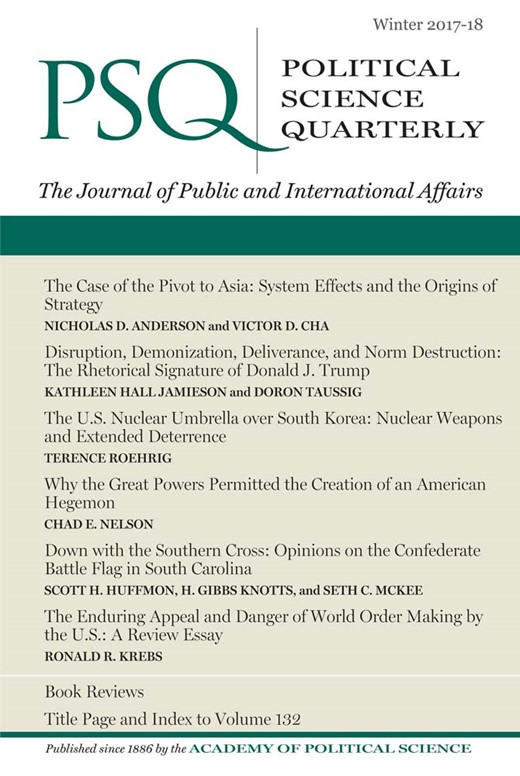-
Views
-
Cite
Cite
Kathleen Hall Jamieson, Doron Taussig, Disruption, Demonization, Deliverance, and Norm Destruction: The Rhetorical Signature of Donald J. Trump, Political Science Quarterly, Volume 132, Issue 4, Winter 2017, Pages 619–650, https://doi.org/10.1002/polq.12699
Close - Share Icon Share
Extract
DURING HIS FIRST 100 DAYS as the 45th president of the United States, Donald J. Trump launched Twitter attacks against “Fake Tears Chuck Schumer,” members of the Republican Freedom Caucus, and a district court judge; accused his predecessor of “wiretapping” his phone, though there was no evidence for the claim; and baffled observers by appearing to lament a nonexistent terrorist attack in Sweden. Here we argue not simply that Trump’s norm-shattering rhetoric deviates from that of his predecessors but also that his discursive patterns constitute a double-edged rhetorical identity or signature. This rhetorical signature both certified Trump’s authenticity as a change candidate to a constituency eager for the disruption of politics as usual and now complicates his ability to govern in a political system still accustomed to those conventions.
Applied linguists have argued that “whereas in principle any speaker/writer can use any word at any time, speakers in fact tend to make typical and individuating co-selections of preferred words.”1 Although the concept of a “rhetorical signature” is not invariably attached to the outcome, computerized textual analysis has been used to identify linguistic differences among presidential candidates2 and presidents.3 Additionally, rhetoric scholars have isolated lines of argument, patterns of inference, and stylistic idiosyncrasies that not only distinguish one president from another but also affect governance.4 Here we label these characteristics a president’s rhetorical signature, a concept defined as “the symbolic marking distinguishing his mode of reasoning and expression from other presidents.”5





